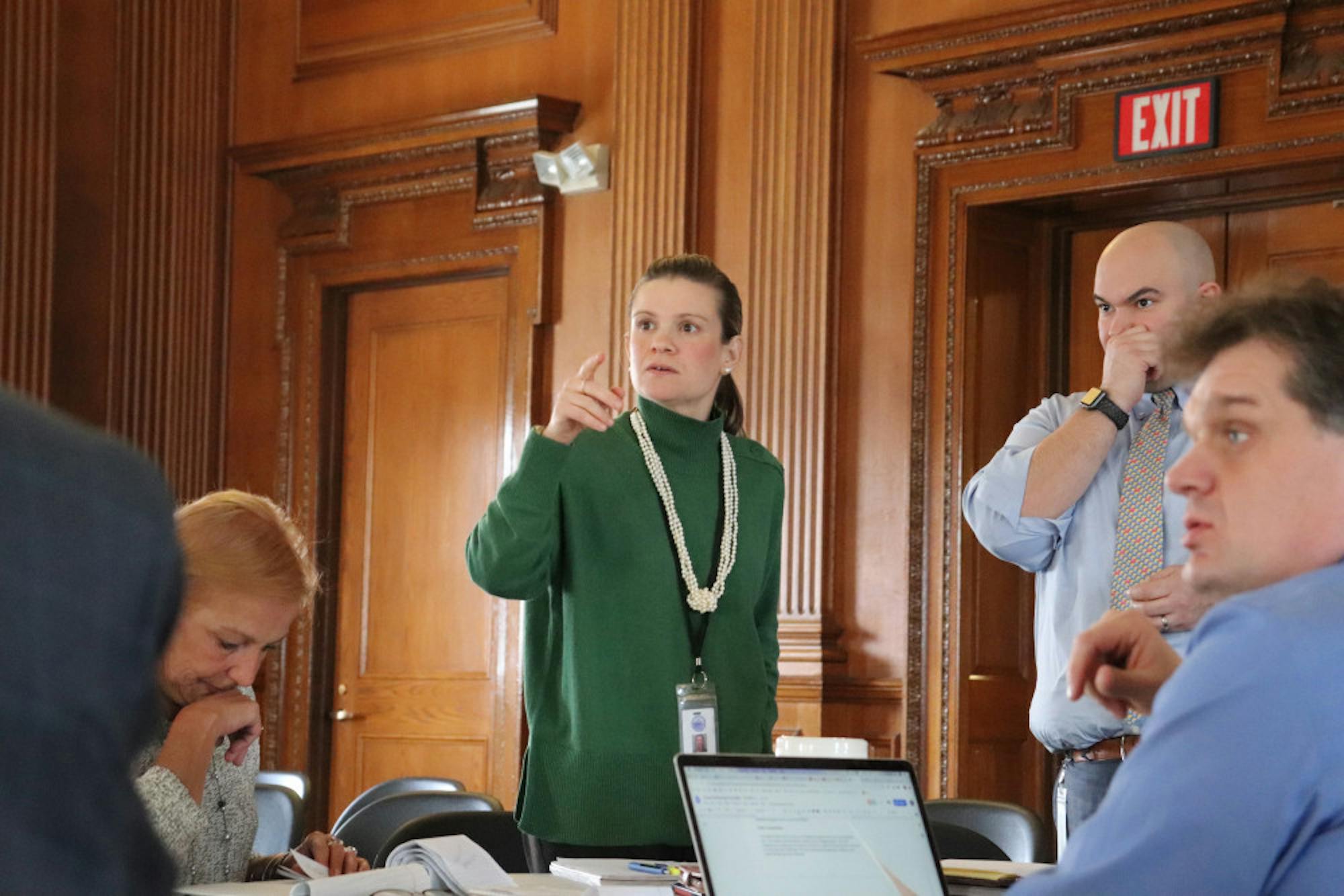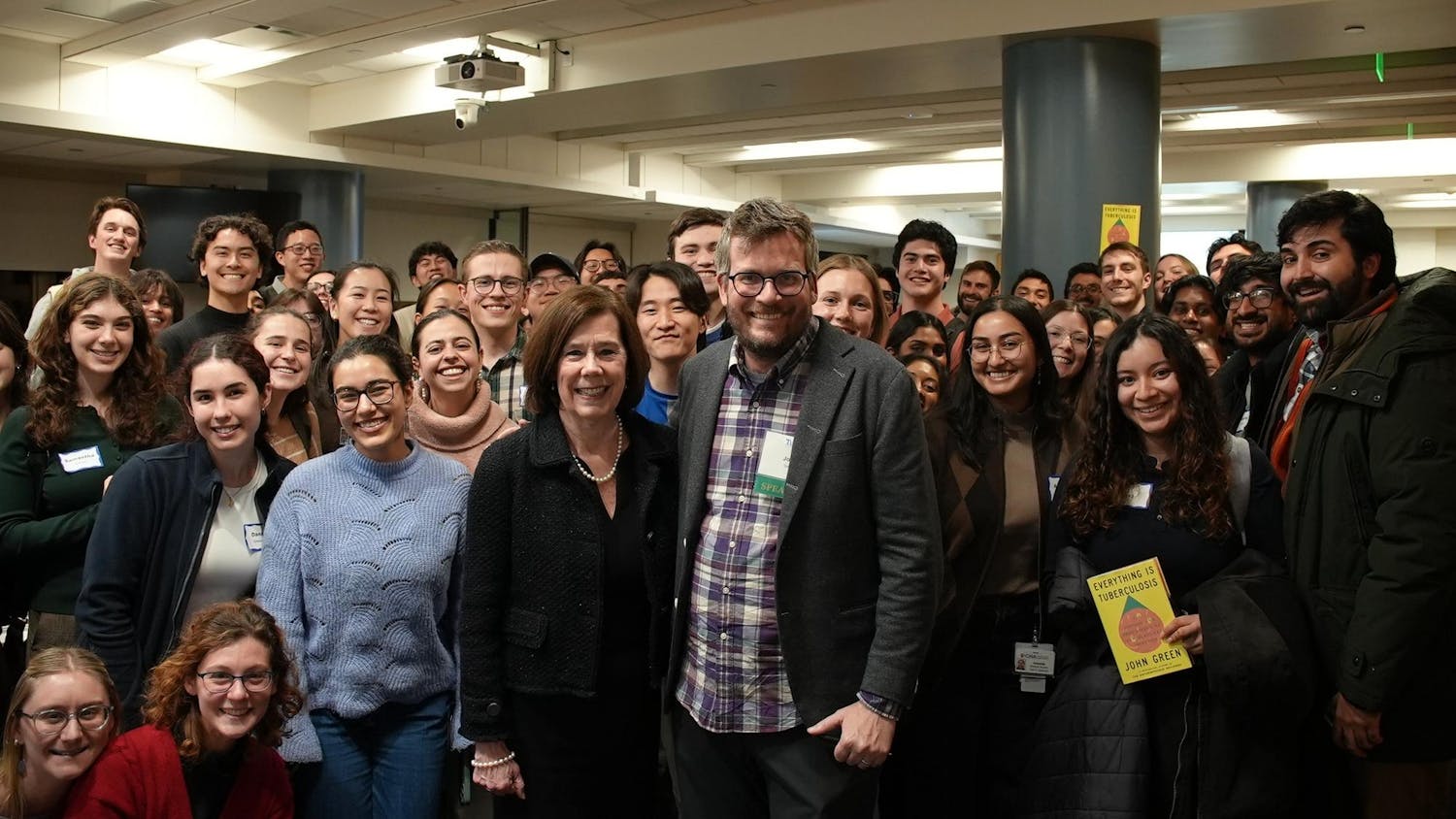Local health departments and hospitals around Tufts have shifted into high gear to prepare for the growing spread of COVID-19 in the United States., as the number of coronavirus cases in Massachusetts has grown in past weeks.
The Somerville and Medford Boards of Public Health have been planning for the novel coronavirus and how it could affect residents’ health, schools and city services. At the same time, local hospital systems have been preparing for the potential increase in patients.
Every morning for weeks, Dr. Steven Sbardella, the chief medical officer at MelroseWakefield Hospital, and his team set a coronavirus preparedness goal. Yesterday’s objective was to ensure that the hospital’s off-site practitioners were adopting standards to prevent the spread of the virus at their offices.
Once he gets to work, Sbardella says he spends the next eight to 10 hours in meetings and on calls trying to achieve that day's goal, checking in with his crisis team at noon.
“We’re trying to look at every scenario possible and planning just in case we have to adjust to different levels of capability,” Sbardella said.
For local hospitals this is the new reality: a race against time.
Right around when Sbardella was checking in with his team at MelroseWakefield Hospital yesterday, 15 minutes down the Fellsway, police officers, firefighters and city officials were filing into the city council chambers at Medford City Hall for an emergency management planning meeting with the mayor.
MaryAnn O’Connor, the city’s director of public health, assisted Mayor Breanna Lungo-Koehn in leading the meeting on the administration’s preparations for the coronavirus.
“We’re being cautious; we’re taking it very seriously, but we believe that we’re ready,” O’Connor said.
The first presumptive positive case of COVID-19 in the city was announced on Tuesday, but O’Connor has been having daily meetings with the mayor on the city’s response to the crisis for more than a week. One of the key concerns is what the city would do if it needed to ask nonessential municipal workers to work from home and deciding which services can be performed remotely.
For instance, if Medford were to see a rise in cases, the city would temporarily suspend routine inspections and permitting to protect staff and citizens, O’Connor said.
The fire department has also changed its protocols in response to the coronavirus pandemic. From now on, if someone with symptoms is reported, only a single firefighter or paramedic will enter the home to reduce the possibility of exposure.
The city is also working on a system for screening 911 calls to immediately collect information on possible symptoms, O’Connor said.
Medford Public Schools is also bracing for closures that could be triggered if a member of the faculty, staff or student body tests positive for the virus. O’Connor said that the chief concern would be providing food for the students that rely on school breakfasts and lunches. One option under consideration is to have grab-and-go stations around the city.
On the other side of the Hill, Somerville is facing its first virus-related school closure today. Following two presumptive positive cases, all schools and district buildings will be closed for the remainder of the week for deep cleaning.
In an interview on Tuesday evening, Doug Kress, the director of health and human services for Somerville said that the city has been doing contingency planning for the virus for weeks.
“This is going to be an effort on all of us to make sure that we slow or stop the spread of this virus,” Kress said.
In a joint statement yesterday, Somerville Mayor Joe Curtatone and Superintendent of Somerville Public Schools Mary Skipper rolled out a series of strict new guidelines to prevent the spread of the virus, including postponing all events sponsored by the city or the schools with over 50 attendees until at least April 30.
Events under that total will now be required to implement “social distancing" — requiring attendees to maintain six feet of space between them. Attendees are also “strongly advised” to sanitize doorknobs and railings before and after the event, avoid shaking hands and replace buffets with packaged food.
“Some of these measures, like postponing events, may cause unwanted disruptions to our daily lives and we will seek to minimize those where possible, but our top priority is protecting the health and safety of all who live, work, and visit here,” the statement says.
Dr. Helen Boucher, chief of the Division of Geographic Medicine and Infectious Diseases at Tufts Medical Center, explained that these sorts of measures are crucial for slowing the spread of respiratory viruses like COVID-19 that only require one contaminated droplet to spread.
“That method of transmission along with the fact that none of us have ever seen it before makes it highly infectious,” she said.
Boucher said that social distancing and public health campaigns by local authorities, like those in Medford and Somerville, are extremely successful epidemic mitigation strategies.
Mitigation efforts aim to slow the spread of the virus, as opposed to containment efforts, which are intended to prevent spread outright, she said. The goal is to prevent a sudden increase in cases that could overwhelm the healthcare system before medications or a vaccine can be brought onto the market.
Marc Lipsitch, a Harvard epidemiologist, recently projected that anywhere from 40–70% of the world’s adult population could fall ill with COVID-19. Boucher said that is largely in line with rates from prior epidemics.
These projections have local hospitals working overtime to find space for the potential patients. David Cecere, a spokesman for Cambridge Health Alliance (CHA), which operates Somerville Hospital, said that the clinical team is currently searching for “non-traditional” spaces to accomodate a potential rise in cases.
CHA is also developing the capacity to perform its own COVID-19 tests, Cecere said.
Though Somerville Hospital and the rest of the CHA system are not yet treating any cases of coronavirus, they have seen an uptick in calls to their primary care centers from people worried about the virus, according to Cecere.
That public concern is not just manifesting in calls and emails, Sbardella said. In recent days, the hospital began storing safety supplies, like masks, in a central location and requiring staff to call in requests.
“We did that to make sure that those supplies weren’t being overused, or even taken home as people panic or get concerned about how to protect themselves,” Sbardella said.
With this new system in place, Sbardella is confident that the hospital has adequate supplies to handle the projections. But just like at CHA, space is also an issue of concern, and if need be, the hospital can convert rooms used for elective procedures to treat COVID-19 cases.
However, Sbardella exuded confidence in the weeks of planning and innumerable meetings he has put into the hospital’s response.
“I am optimistic,” he said. “The promise will be we will do the best job possible with whatever we’re faced with.”
Local governments, hospitals accelerate preparations for coronavirus

Medford Mayor Breanna Lungo-Koehn leads a planning meeting in Medford City Hall on March 11, 2020.





